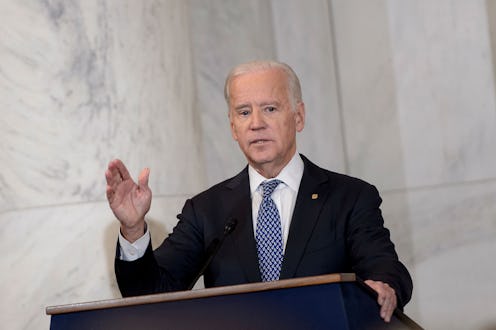News
The Intricacies Of The Electoral Process Continue
In a normal presidential election year, no one would pay much attention to the actual vote-casting of the 538 electors (completed yesterday), nor would they inquire further after just what happens to those votes. But as everyone knows, this is not a normal year. And so asking after where electors' votes are sent, who opens them, who reads them, who tallies them, and who announces that final presidential count is now on the minds of many Americans. The answer to all those questions can be found in the United States (US) Code, Title 3, Section 15.
Though electors cast their official votes on Dec. 19, the results of those ballots won't be known until Jan. 6. That's when Congress will get together and ratify the Electoral College tally, as stipulated by Title 3, Section 15. The original language is actually quite precise, not to mention more poetic than most contemporary legalese. "Congress shall be in session on the sixth day of January succeeding every meeting of the electors. The Senate and House of Representatives shall meet in the Hall of the House of Representatives at the hour of 1 o’clock in the afternoon on that day, and the President of the Senate shall be their presiding officer." As so eloquently stated, this means that Vice President Joe Biden will oversee the electoral vote ratifying process.
And while no major surprises are expected, the official count of electoral votes could still be far more interesting than the usual standard. The Hamilton Electors have garnered a good bit of publicity for their efforts to stop President-elect Donald Trump from becoming president-for-real. Their strategy was simple: convince 37 Republican electors to defect from Trump, and nominate instead a more palatable Republican alternative. But as Monday's vote showed, this strategy didn't work out well.
All indicators point to this not even coming close to happening. That being said, it will be fascinating to see what House representatives do with the record number of "faithless" electors. Because the seven electors who reportedly cast ballots for someone other than who they were pledged to marks the largest defection in electoral college history. Not since 1832 has more than one elector rejected their candidate, to give a sense of how rare faithless electors really are.
Legislators have the power of invalidating the votes of rogue electors. Given that the House is controlled by Republicans, and adding in President-elect Trump's penchant for revenge, it wouldn't be surprising if any votes from Republican electors that come in for someone other than Trump get the official boot. Jan.6, here we come.
